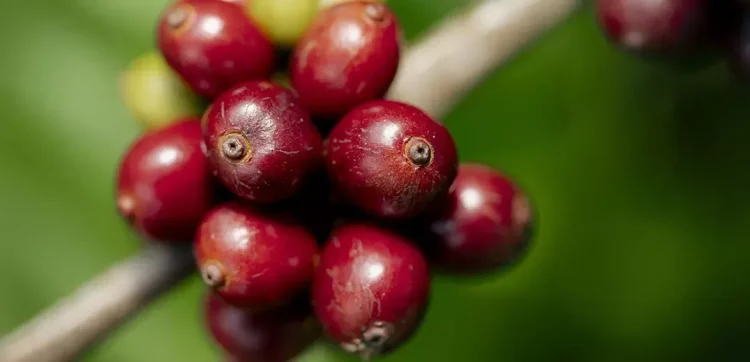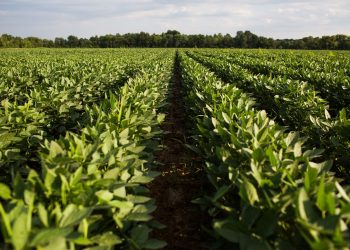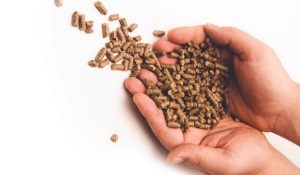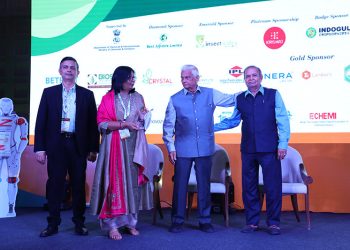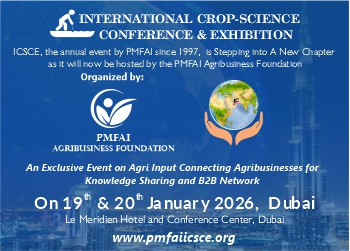Nescafé, Nestlé’s largest coffee brand, sourced 32% of its coffee from farmers implementing regenerative agriculture practices in 2024. This achievement surpasses Nescafé‘s 2025 goal of 20%, reflecting the strong traction that regenerative agriculture is gaining within coffee farmers, according to the latest Nescafé Plan 2030 Progress Report (pdf, 14Mb), released recently.
Nescafé is supporting coffee farmers transition to practices like optimized fertilization, soil cover, mulching and composting, with the aim of improving productivity and lowering their costs. The adoption of these practices is also helping reduce greenhouse gas emissions (GHG) in coffee. In 2024, participants of the Nescafé Plan achieved a reduction ranging from 20% to 40% of GHG emissions per kilogram of green coffee.1
The challenges posed by climate change were acutely felt in the coffee sector this past year, across several coffee-producing countries, where farmers experienced adverse weather conditions. This has resulted in record-high global prices for both arabica and robusta coffee and less coffee available, underscoring the urgent need for more resilient coffee supply chains.
Axel Touzet, Head of Nestlé’s Coffee Brands Strategic Business Unit, said: “Regenerative agriculture is at the heart of the Nescafé Plan and our efforts to build resilience in our coffee supply chain. This third Progress Report shows that farmers are becoming increasingly aware of the benefits of these practices, as shown by the increased adoption rates. This encourages us to continue the work we do with our partners, suppliers and farmers in the regions where we source our coffee.”
As coffee trees age, they naturally become less productive and more susceptible to the effects of climate change, which can further diminish yields. Renovating and rejuvenating coffee farms is essential to maintain productivity, and in 2024, the Nescafé Plan continued its longstanding coffee plantlet program by distributing 21 million coffee plantlets to support improved yields and climate adaptation.
The Nescafé Plan currently covers more than 400 000 hectares of coffee farmlands. In 2024, over 1 400 of the Plan‘s field staff and agronomists trained more than 200 000 coffee farmers in 16 countries in regenerative agriculture. These experts are actively assisting farmers with topics, such as soil erosion and runoff, organic matter management and optimized fertilization.
In this year’s Progress Report, Nescafé highlights the work done with two of its partners: the Deutsche Gesellschaft für Internationale Zusammenarbeit (GIZ) and TechnoServe.
Coffee production is a business, and farmers need to make informed decisions about topics like coffee varieties, farm investments and inputs. Nescafé partners with The Deutsche Gesellschaft für Internationale Zusammenarbeit (GIZ) to enhance farmers’ business skills. Through the Coffee++ Project, coffee farmers are trained according to the Farmer Business Schools approach: they gain essential knowledge on how to improve yields and household incomes through diversification and regenerative agriculture methods, while also enhancing their business and financial acumen.
Encouraging data from a study conducted by TechnoServe2 indicates that regenerative agriculture can significantly increase farmers’ income from coffee while decreasing GHG emissions. The study took a bottom-up approach, assuming constant parameters, presenting farm-level data and in-depth insights on a country-by-country basis. It presents a compelling case for public and private investment: estimates indicate that an annual investment of $500-600 million into regenerative agriculture in coffee could trigger a per annum return of over $2 billion in additional farmer income, up to $2.6 billion of additional coffee exports and up to 3.5 million metric tons of abated CO2e.
“We are proud to have worked alongside Nestlé and the other partners on this study. As a result of this effort, we have the data to show that regenerative agriculture is not only good for nature, but essential for farmer livelihoods and the future of the coffee industry,” said Paul Stewart, Global Coffee Director at TechnoServe. “We hope it will inspire greater investment from governments and the private sector to scale-up regenerative coffee production around the world.”
Just as importantly, the study suggests that significant additional benefits could be seen in the form of a multiplier effect in the local economy and positive environmental impacts across soil health, water conservation and biodiversity.
Through the Nescafé Plan, Nestlé and its partners continue to support farmers to help create a strong and resilient coffee supply chain for the future.
1 Assessed for most origins in which primary data of GHG farming emissions was monitored, representing more than 30% of our green coffee supplies.
2 Funded by Nescafé, Nespresso, JDE Peets and the Rudy & Alice Ramsey Foundation. Not specifically with respect to the Nescafé Plan.






